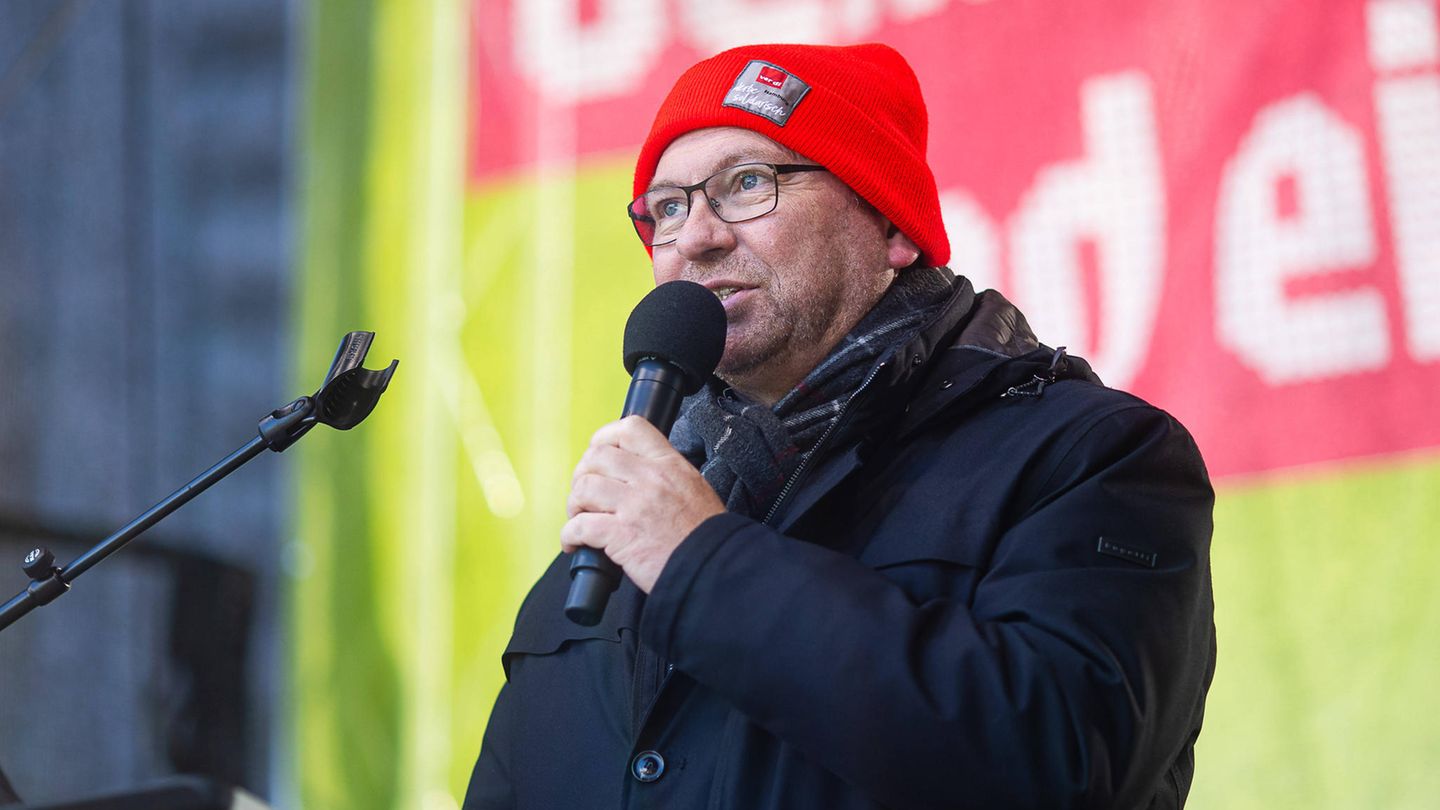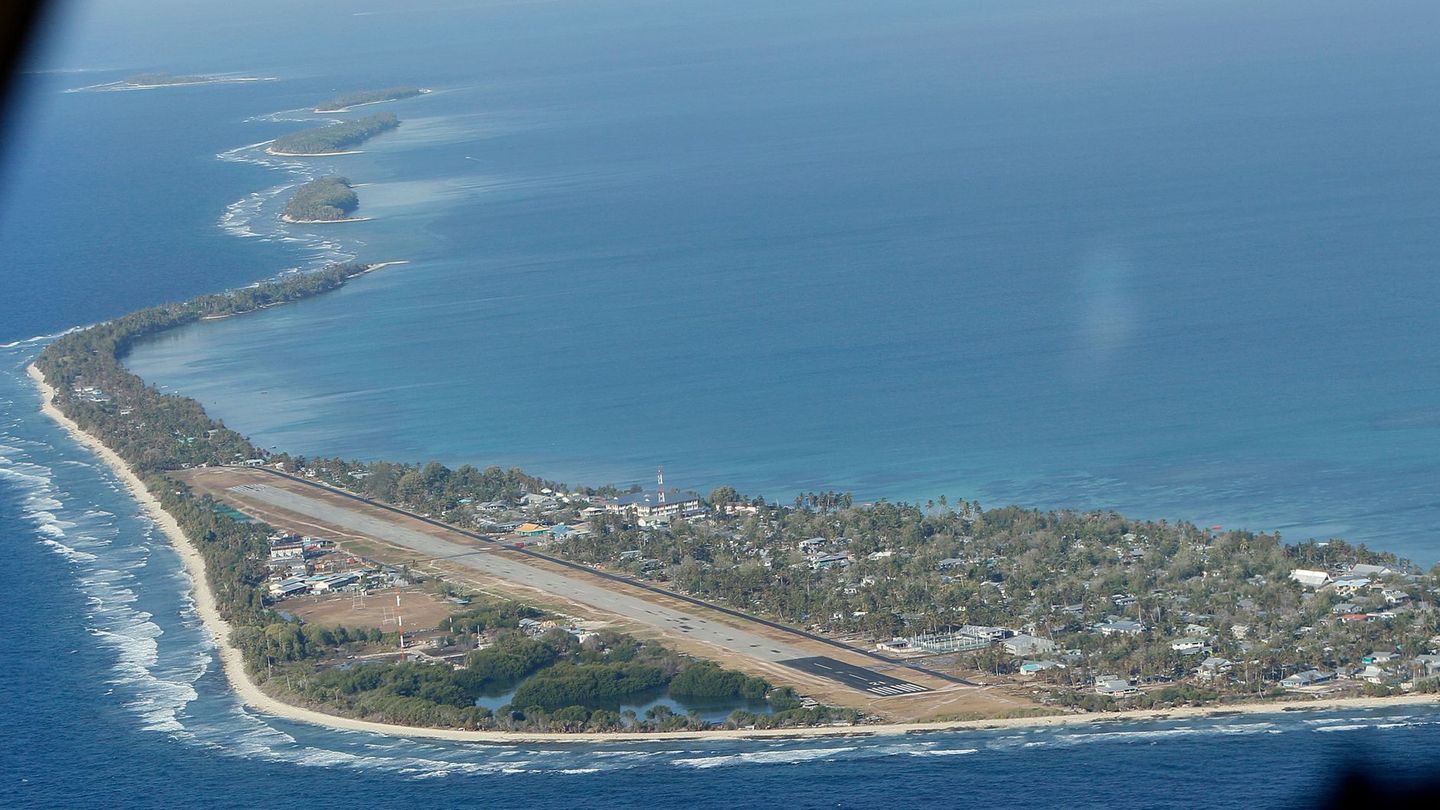Are there actually more strikes today than before? Verdi boss Frank Werneke about a new self-confidence among employees, threatening letters to his negotiators and the AfD as an employer.
Mister Wernekeis the impression misleading or are there more strikes today than before?
Significantly more people took part in our strikes last year. Among other things, the entire range of public services, retail and Deutsche Post were involved in labor disputes. But the impression certainly arises from the fact that the transport areas are particularly affected at the moment. First the Deutsche Bahn, which was on strike by the GDL, then the various aviation disputes and now local transport. Of course, people notice that this is all happening in January and February.
Skilled workers are being sought in many areas. Why does there have to be a strike at all – supply and demand should automatically regulate wages?
I am happy to admit that there have certainly been worse initial conditions. The labor shortage is an aid in collective bargaining. Take Lufthansa and its ground employees, for example. The employer Lufthansa always treated them as a “fifth wheel on the wagon” with significantly worse working conditions because the ground employees were sometimes easier to replace than cabin employees. In the past, it was difficult to organize a strike with ground workers, which also paralyzed air traffic. That has changed fundamentally: now there is a shortage of ground staff and – also as a result – a significantly increased self-confidence. So you can strike effectively. Lufthansa has to process this first.
“Municipalities are being burdened with more and more costs”
Local transport timetables are also being thinned out because there are no bus drivers.
Yes, no one disputes the defect. On the other hand, however, there is no financially strong corporation, but rather the municipalities, which are constantly being burdened by the federal government. In the dispute over the budget, the traffic light coalition even reduced the funding for public transport. That’s why collective bargaining is anything but easy. But we have a first collective bargaining agreement in Saarland and I am optimistic that more will follow.
Apparently many people have the feeling that they can get more out of a union than through individual negotiations. Your membership numbers are increasing enormously. How do you explain that?
This has to do with tariff policy. Last year we had 190,000 entries and a net increase of 41,000 new members. And in the weeks in which we fought for good negotiation results, most people agreed. There was a huge loss of purchasing power due to inflation, so for many it was necessary that we get a lot out of the collective bargaining rounds. But what you described before is true: the changes in the labor market have given employees a new self-confidence and we are organizing this successfully.
“A bit of nerves are unavoidable during strikes”
On the one hand, the number of members is growing, but on the other hand, many people are quite annoyed by the strike. How do you get that?
Of course people write us emails or call us. I don’t want to make light of it either: Of course it’s individually stupid if a holiday flight is canceled or the way to work is significantly more difficult. Overall, I wouldn’t say that the complaints are increasing. I tend to experience clear support. But a little annoying is inevitable. We are active in daycare centers, hospitals, local transport, waste management and air transport. Whenever we strike there, it has a much greater impact on citizens than if there is a strike at an automobile factory.
The federal government’s annual economic report even stated that the strikes were slowing down the economic recovery.
This is really nonsense. The main reason for the current economic weakness is a lack of investment. We have an investment backlog of 140 billion euros in the municipal sector alone, which is not really being addressed and is becoming increasingly critical for the business location. And we also have a problematic development in Germany because the bottom line is that wage development is worse here than in other countries. Our collective bargaining agreements in the public sector, at the post office, in the airport sector and in the energy industry are quite decent. But of course that is only part of the population that benefits from it. Overall, there has been a massive loss of purchasing power in the past two years, which is leading to weak consumption. The fact that there are areas with good wage development has a lot to do with our labor disputes.
The current labor market figures show that unemployment is slowly increasing – despite the ongoing lack of staff. Are you worried that unemployment will become a bigger problem again – and that the new power of workers will weaken?
That can have an influence. You have to take a closer look at the numbers. Unemployment is rising particularly in areas where structural changes are taking place. This particularly affects the industrial sector, but also sectors in the service sector, such as stationary retail. There are job losses in some places as a result of bankruptcies, for example of shoe stores or textile retailers. At the same time, there are tens of thousands of unfilled retail positions. The general problem: It doesn’t work to organize job needs and losses in such a way that people suddenly become bus drivers when they lose their job at the auto supplier. This has a lot to do with wage differences.
Not more with qualifications?
That too, of course, but that could be solved. Above all, the working conditions and wages are so much worse in local transport than in the sectors in which jobs are now being lost that this change will only take place in exceptional cases. But overall, I can say for the private service sectors and the public service that there is no end in sight to the shortage of skilled workers and workers.
In recent months, the hatred of progressive parties, projects and protests has become significantly more aggressive. Do you also feel this as a trade unionist?
The overall climate is becoming harsher, we can see this on social media alone. For people who are particularly visible on site, i.e. trade union negotiators, the threat situation is increasing and they are receiving threatening letters. I don’t want to be whiny about it at all, because it’s a development in society as a whole from which we are not exempt. But none of this existed to this extent before. Where it appears necessary, we are in contact with the criminal police to assess the specific danger.
“Persistent personal threats and attacks”
Is it getting to the point where you have to cancel demonstrations?
Fortunately not. You never know what else will happen. But if I compare that with the attacks that have also taken place on MPs’ offices, with the attacks in particular against the Greens, then fortunately we don’t see them as severe; at least when it comes only to strikes. Many of our colleagues are also active in networks against the right, against the AfD and against Pegida. This is a very tough field of debate, where there are always personal threats and attacks. In some regions we are the only organization that is still widely represented. We are the largest union in the East and have structures on site.
How do you view the state elections there, which are coming up in the fall?
With concern. If the opinion polls are even partially confirmed, this threatens political stability. For us this has another special component. For our members in the public service, this could mean that the AfD becomes their employer – as mayor or district administrator. This is a very special situation and I don’t yet know exactly how we will deal with it. We are of course in close contact with the staff councils in districts where there is a risk that anti-democrats will win elections and are trying to prepare them, support them and build a network.
What is the general mood among your members at the moment?
Where I travel, I feel a lot of dissatisfaction. There is this feeling of being overwhelmed by the multitude of crises that are increasingly lining up one after the other: still the war against Ukraine with its consequences, including economic ones, or now the conflict in the Middle East. And with that comes a faint. There are fears of relegation. The mood is tense, angry, but I wouldn’t say discouraged.
Angry at what or who?
Often it is a generalized anger at “politics”. I see it as our job to show what differences there are and that it’s worth taking a closer look. Who is responsible for what? But the assessment of the federal government’s political decisions is rather negative, even among union members. What makes people angry, for example, is that the federal government wants to finance the fundamentally correct support for Ukraine from the regular budget instead of declaring a budget emergency in this situation. This undermines the solidarity and willingness to support among the population – a daily celebration for extremists.
Mr Werneke, how many strike days should we expect this year?
I could make it simple and say: You have to ask employers that.
But of course you also know that it’s not quite like that.
I’ll put it this way: I’m reasonably sure that we will get deals in the areas that are particularly in focus, i.e. Lufthansa, aviation security and local transport, in the next few weeks. And then there are other tariff areas that are important to us and in which negotiations are ongoing or pending, such as Deutsche Telekom, banks, insurance companies and the printing industry. There may be arguments there, but I don’t want to prejudge that. And of course there would be a different level of concern than if the bus didn’t run.
Source: Stern




